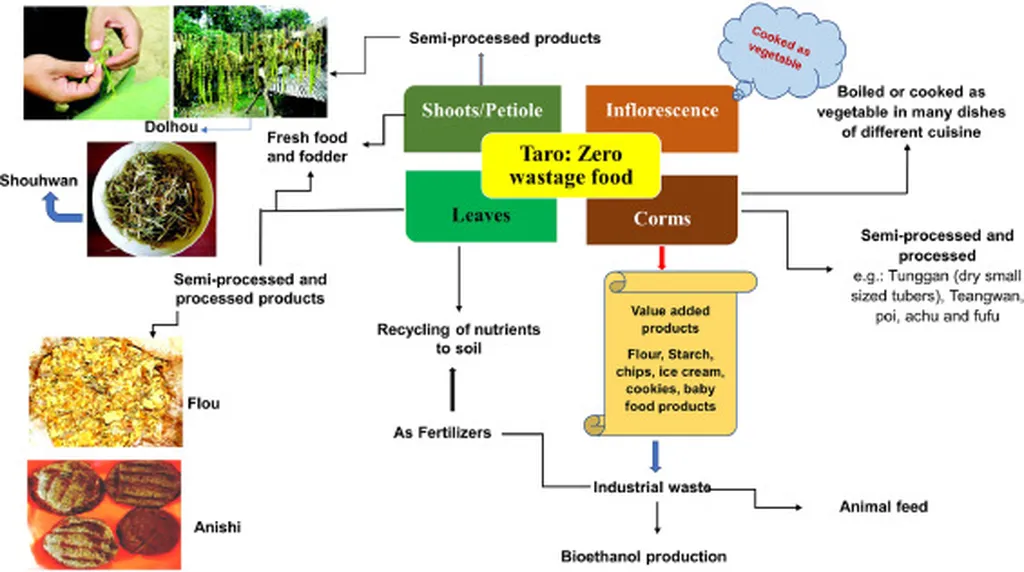In the lush, tropical landscapes of Kerala, India, a groundbreaking study is making waves in the agritech world, offering a promising solution to enhance productivity, profitability, and energy use efficiency in taro cultivation. The research, led by Dr. S. Sunitha from the ICAR-Central Tuber Crops Research Institute in Thiruvananthapuram, explores the impact of various water-saving technologies on taro (Colocasia esculenta), a staple crop in many tropical regions.
Taro, a highly water-sensitive crop, is often at the mercy of climate change and water scarcity. Dr. Sunitha’s study, published in ‘The Indian Journal of Agricultural Sciences’ (translated as ‘Indian Journal of Agricultural Sciences’), aims to change that narrative. The research compares different irrigation techniques, focusing on drip irrigation at 50% crop evapotranspiration (ETc) combined with various water-saving treatments.
The standout performer in this study is the porous ground cover mat. “Drip irrigation at 50% ETc along with mulching using porous ground cover mat resulted in the highest taro cormel yield,” Dr. Sunitha explains. This method not only boosted yield by 32.2% compared to irrigation at 100% ETc but also increased water productivity by 60%, energy use efficiency by 20%, and net income by 37%. Moreover, it saved 50% of irrigation water, a significant achievement in the face of global water scarcity.
The implications for the energy sector are substantial. As energy use efficiency improved by 20%, the study suggests that these water-smart technologies can lead to more sustainable and cost-effective agricultural practices. “This is a game-changer for farmers and the energy sector alike,” Dr. Sunitha notes. “By optimizing water use, we can reduce the energy required for irrigation, leading to lower costs and a smaller carbon footprint.”
The study also highlights the potential for significant savings compared to traditional furrow irrigation. Drip irrigation at 50% ETc with a ground cover mat recorded a 63.8% increase in cormel yield, 3.8 times the water productivity, and 100% saving in irrigation water. These findings underscore the importance of adopting water-smart technologies in upland taro production, particularly in tropical regions.
As climate change continues to pose challenges to agriculture, Dr. Sunitha’s research offers a beacon of hope. The study suggests that porous ground cover mats could be a key component in ensuring sustainable taro yield per drop of water. This innovation not only benefits farmers but also has broader implications for the energy sector, promoting more efficient and environmentally friendly practices.
In an era where water scarcity and climate change are pressing concerns, Dr. Sunitha’s work serves as a reminder of the power of innovation in agriculture. By embracing water-smart technologies, we can pave the way for a more sustainable and profitable future. As the agricultural community continues to grapple with these challenges, this research offers a compelling blueprint for progress.

